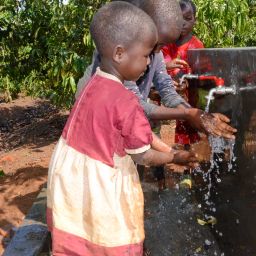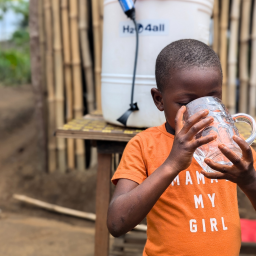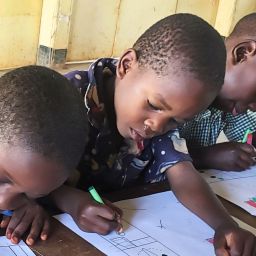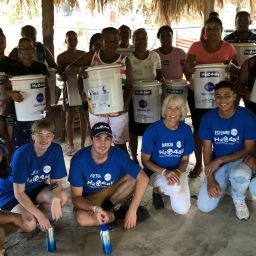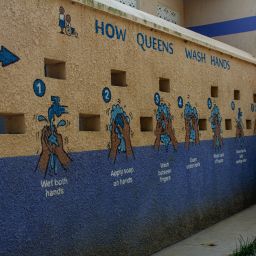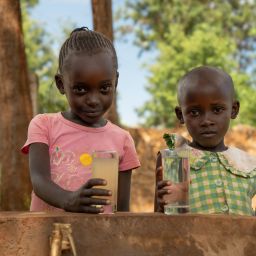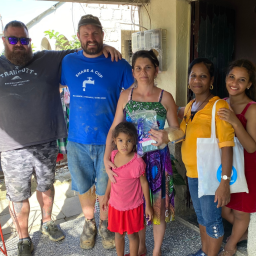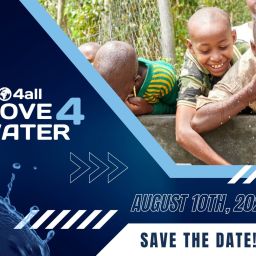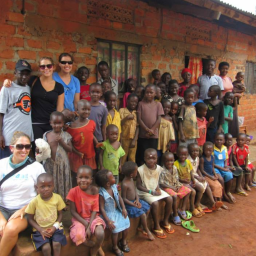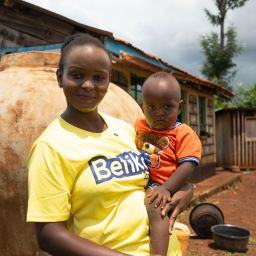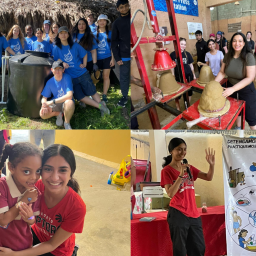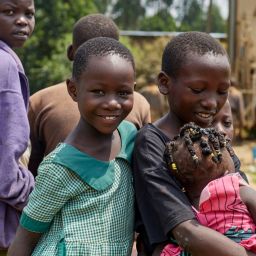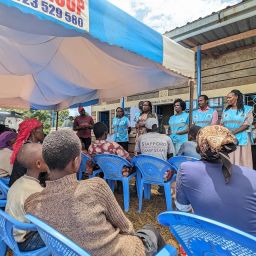The Future of Safe Water Starts with Her
February 11th was the International Day of Women and Girls in Science. At H2O4ALL, we’re honouring this day because of the monumental role women around the world play in their communities’ access to safe water. In every part of our work, from our volunteers to our client communities, empowering young women towards education is crucial to help struggling communities thrive.
In water-stressed communities globally, collecting water is frequently women’s work – so it’s no surprise when women step up to protect their community’s water access.

In our post-project water safety and sanitation trainings, women from our client communities and their families gain the knowledge and skills to keep their community’s new water sources sustainable. Each system implementation is followed by the establishment of a water committee, in which women frequently take the lead in ensuring that their community’s water is safe, sustainable and fairly distributed.
Over the last sixteen years, we’ve met dozens of young women whose experiences with water scarcity had given them a desire to step up for their communities, fueling their ambitions to become the doctors, engineers or leaders their communities needed. However, the same struggle often made it impossible for these girls to achieve their dreams.
In 2022, we met with a group of students at Life Secondary School in Kyempene while our team was on the ground to complete the school’s safe water system. During an interview session, the students shared their struggles with the community’s water scarcity, their responsibilities at home and school, and their hopes for the school’s new water system.
“When I complete my studies, I hope to become an engineer.” said Annitah Tuheirirwe. “I am extremely happy for this project because our students have been running short of water.”
Another secondary student, Catherine Niwagaba, commented, “I go to school every day because I want to be an electrician… my favourite subjects are physics and mathematics.”
Before the safe water project at Kyempene was implemented, girls like Catherine and Annitah risked missing school because of the burden of water scarcity. Not only were they shouldering the responsibility of collecting water for their families, but the school itself had no water for staff or students. The stress of water scarcity pushed many young girls to leave school early, frequently putting them on a path towards early marriage and trapping them in the cycle of poverty. Because the school has safe water, Kyempene’s young women are empowered to focus on their studies, pursue their own talents and ambitions, and become the leaders their community needs for a bright future.
Across the world, millions of young women are locked out of their chance to change the world by water scarcity and poverty. It’s our mission to give them the support they need to make a difference – and the women in our project and volunteer teams are dedicated to making that possible.
Maryam Safdar is an undergraduate student of Doctor of Optometry, at Waterloo University in Ontario, Canada. Later this month, she’ll be part of a volunteer team of Waterloo students in Canta Rana, Dominican Republic. As part of our eight-year-strong filter initiative, the volunteers will help construct and distribute our point-of-use ceramic filters, install rainwater filtration systems and work with the Canta Rana community to educate families about water safety and sanitation.
“My studies focus on eye diseases, one of particular concern is Trachoma, a waterborne eye infection, which is the third leading cause of preventable vision impairment and blindness in the world.” she explained. “I am motivated to go on this trip because I’ve seen how contaminated water can have devastating effects on peoples’ lives.”
“We underestimate how important access to clean water is.” she elaborated. “When you can get it out of a tap, it’s easy to forget how many people lose their lives to waterborne diseases. I’ve worked in communities where people risked life-changing diseases every day because they didn’t have access to safe water or medicine.”
When asked what she was most looking forward to on the upcoming trip, Maryam expressed excitement about working with the Canta Rana community.
“This trip allows me to use my knowledge to help people protect their sight, not just by providing access to clean water, but by addressing the root causes of preventable vision loss. Many infections come from washing with contaminated water or poor sanitation practices. By improving water quality and educating people about eye care, we can prevent avoidable blindness. Trachoma thrives in areas with poor sanitation and limited access to clean water.
Without treatment, repeated eye infections can cause irreversible vision loss. In working alongside the community, I hope to make a lasting impact on both eye health and water safety, ensuring that more people can see clearly and live healthier lives.”


